21-year-old AMKMQ, a multimedia artist based between Rhode Island, Lagos and Accra, likes to describe herself as “‘une fille en feu’, which is French for ‘a girl on fire’.” That, in itself, should tell you a good deal about the emotional qualities that characterise her work. “I always want to convey the intensity of life as I experience it and the truth of that intensity,” whether that’s of passion, pleasure, or even pain”, she explains.
To her, this constant flux of powerful emotions is a defining feature of the moment we currently occupy, a saturated hyperreality that we engage with both on and off screens. It’s a desire to “respond directly to our reality right now,” she says, that pushed her to develop the richly pigmented, subtly surreal aesthetic that mark out her paintings, digital ‘paintings’, and films. “I’m always thinking about visual information, and how overstimulated we are as a generation with things like Instagram — you go on that every day and you’re constantly exposed to imagery.”
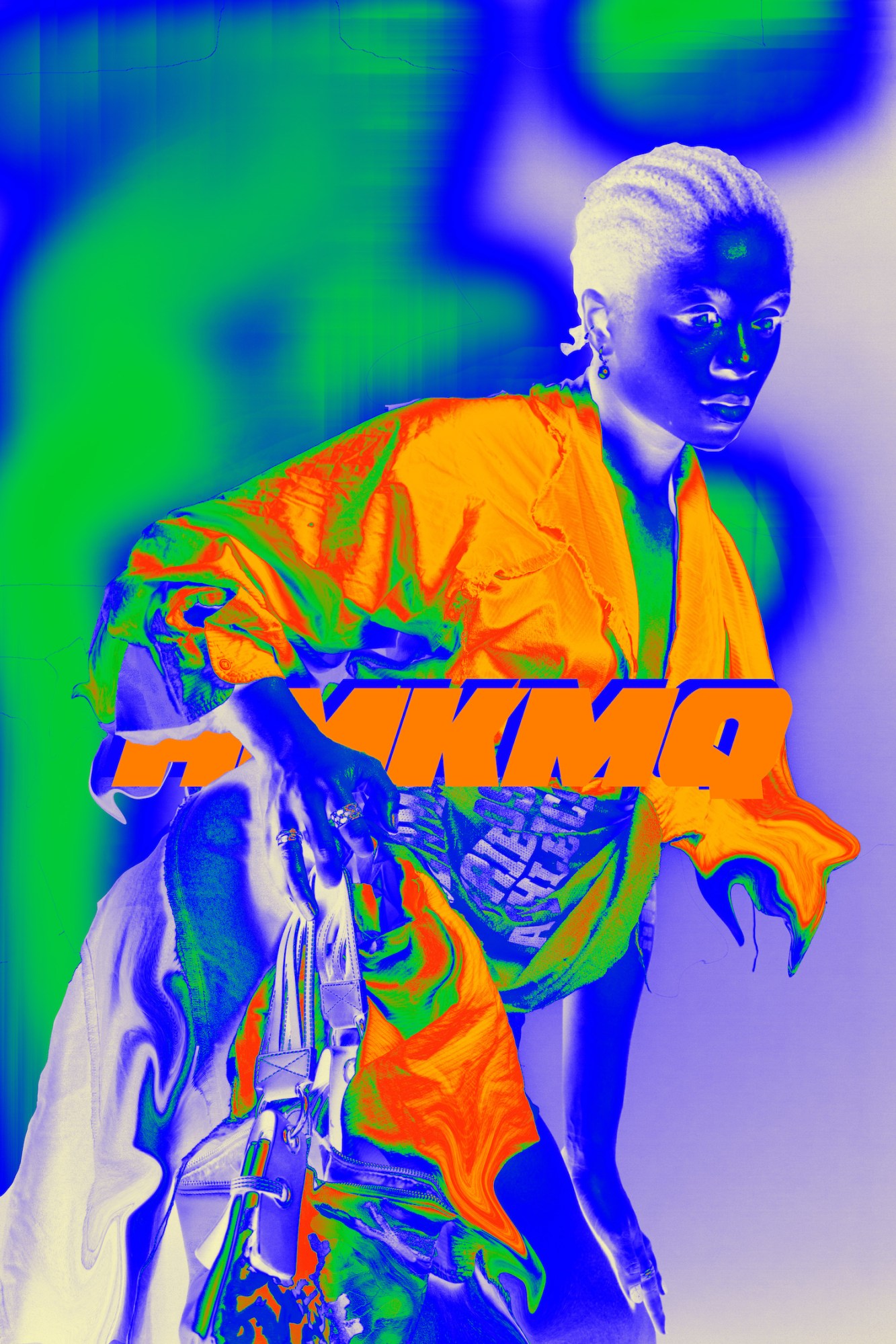
But her work isn’t just another lofty meditation on our shared screen-based reality — the one you’re plugged into right now as you scroll through this page. The experiences that her work expresses are far more specific. Universal as its visual appeal may be, AMKMQ’s work is anchored in her lived experiences as a young, dark-skinned Black woman, and the negotiation of social expectations that life at her particular intersection of gender, racial and cultural identity entails.
“As dark-skinned women, we’re always silenced in one way or another: we’re always told that we’re louder than we are,” she says. “Especially as a West African woman, there are so many forms of femininity and purity politics, all of which try and force us to be soft and quiet.” Her work, therefore, might best be seen as the visual equivalent to an emboldened shout — a revindication of the artist’s right to take up space as and how she wishes.
Growing up between Ghana, Nigeria and South Africa, and later moving to the UK and the US for her secondary and university education, the spaces that she was allowed to take up, and the ways she was expected to perform within it, were constantly changing. “Each country has its own type of racism, and in each country I’m also a different identity. In Nigeria, I’m an outsider, I’m a Ghanian. When I get to England, I’m an aggressive African woman at boarding school, and in America, I’m just Black, but sometimes I’m African if I’m talking to an African American,” she says. “Being a dark-skinned Black woman, you just constantly have to fight to understand yourself as yourself, and that’s before you start thinking about any stereotypes that you’re trying to avoid.”

Her experience in America in particular, where she’s currently enrolled on a dual-degree program in Painting at RISD and Economics and International Relations at Brown, has been particularly formative in pushing her work in its emotionally evocative direction. Often coming up against blank responses when sharing work with her predominantly white and Asian art school peers, she consciously sought to develop an approach that could be universally read, and that succinctly encapsulated the nuances of her experience of being a constant Other. “I just really started to think about the concept of language and visual language, and how I can just permeate any sort of thinking while talking about my experience as a Black woman,” she says. “My work became more and more oversaturated and intense — in the films in particular there are lots of flashing scenes. And I also started to make these art books and physical objects that people would have to feel, to show that just because I’m a Black woman creating work it doesn’t meant that it’s about identity in an inaccessible manner — you can’t just ignore me because you presume it’s only about my race.”
An intriguing aspect of the visual aura of her work is the referencing of commercial entertainment branding — it’s there in the vintage film poster-style layouts with fashion editorial credits, or the block capital logo lettering that spells out her name. Given that the primary subject of her work is herself, it’s tempting to read it as an ironic commentary on self-commodification. But, taking into account that AMKMQ’s work is a sustained, adamant gesture of Black female representation, it takes on a more nuanced, more poignant tone. “I don’t necessarily see me using myself in my work as self portraiture. I use my face and my body as tools,” she explains. “I think it comes back to me wanting to show the multiplicity within my experience as a Black woman. Growing up in Africa, you’re so often told that what you are isn’t acceptable. There are a few tropes that people have of Black women, and that’s what you’re going to be constantly categorised as.” That’s why, as of late, she’s become particularly enamoured with the concept of rock stars, often performing with the same sense of wanton passion and do-what-you-want gusto in her films. “They’re just living their lives,” she says, “and I really just want to see a future where black women are doing what they want.”
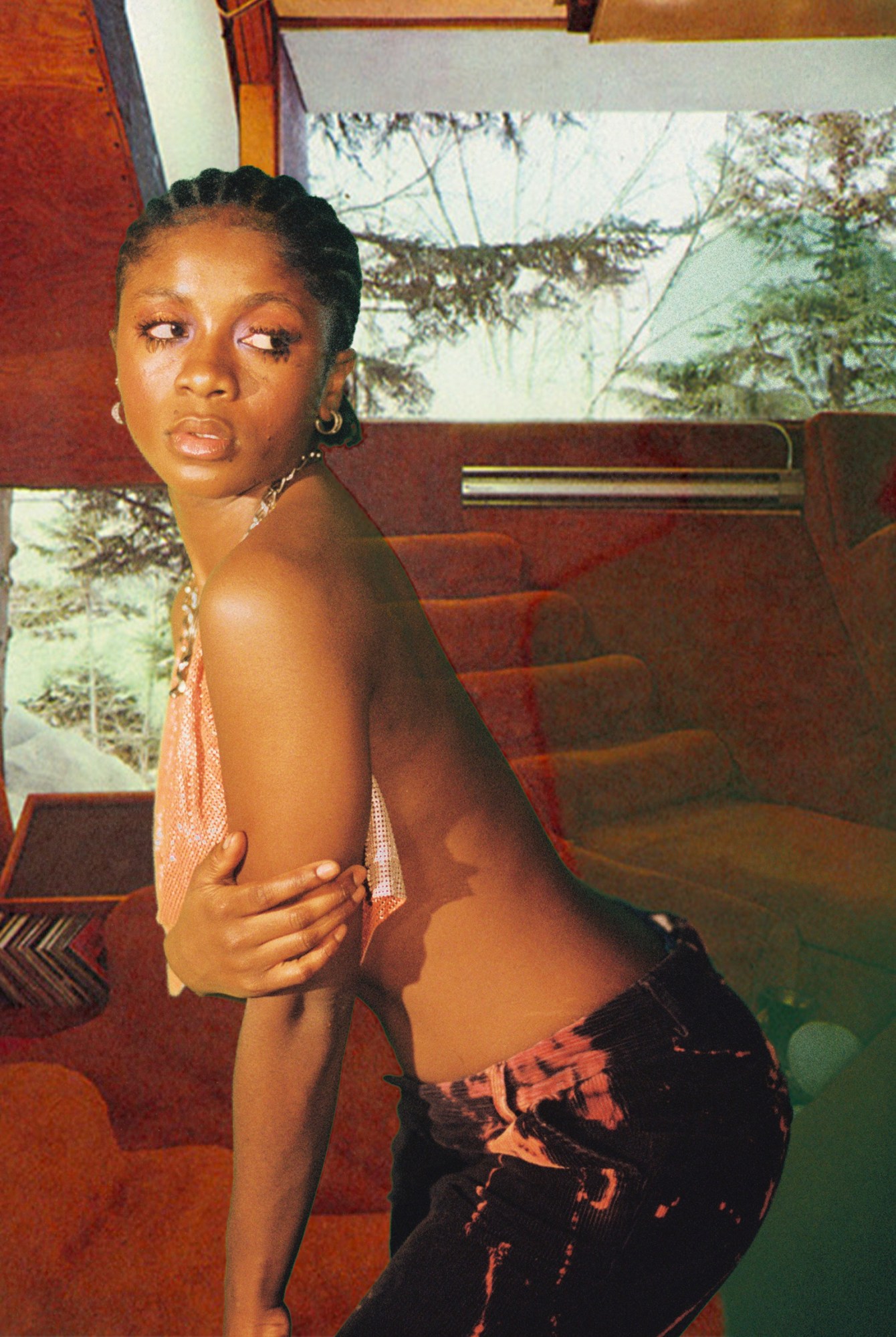
While her work, at its surface, may appear to focus on shattering the restrictive moulds into which Black women, specifically Black African women, are expected to fit, its core message has more to do with “just being true to who you feel you are” — even if what you want to be may seem to align with an ‘accepted’, normative role. “You can’t live your life trying to avoid stereotypes, either, trying to constantly prove that you’re something different — that can also really get to you,” says AMKMQ. “But why can’t we just be all of these different characters? I think that, because of how complex our experiences as Black women are, so many of us embody all of these different characters at once, and so much more.”

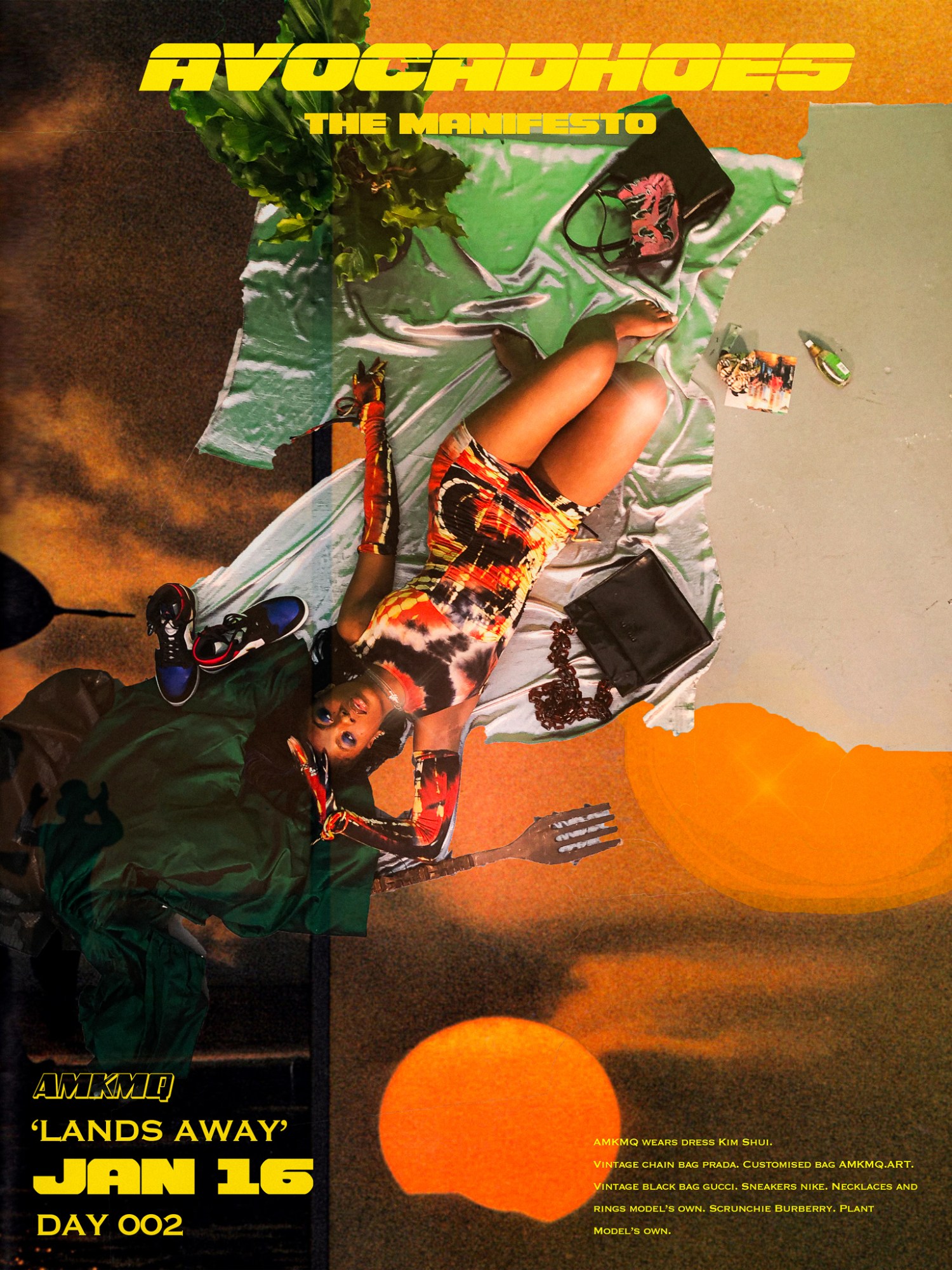
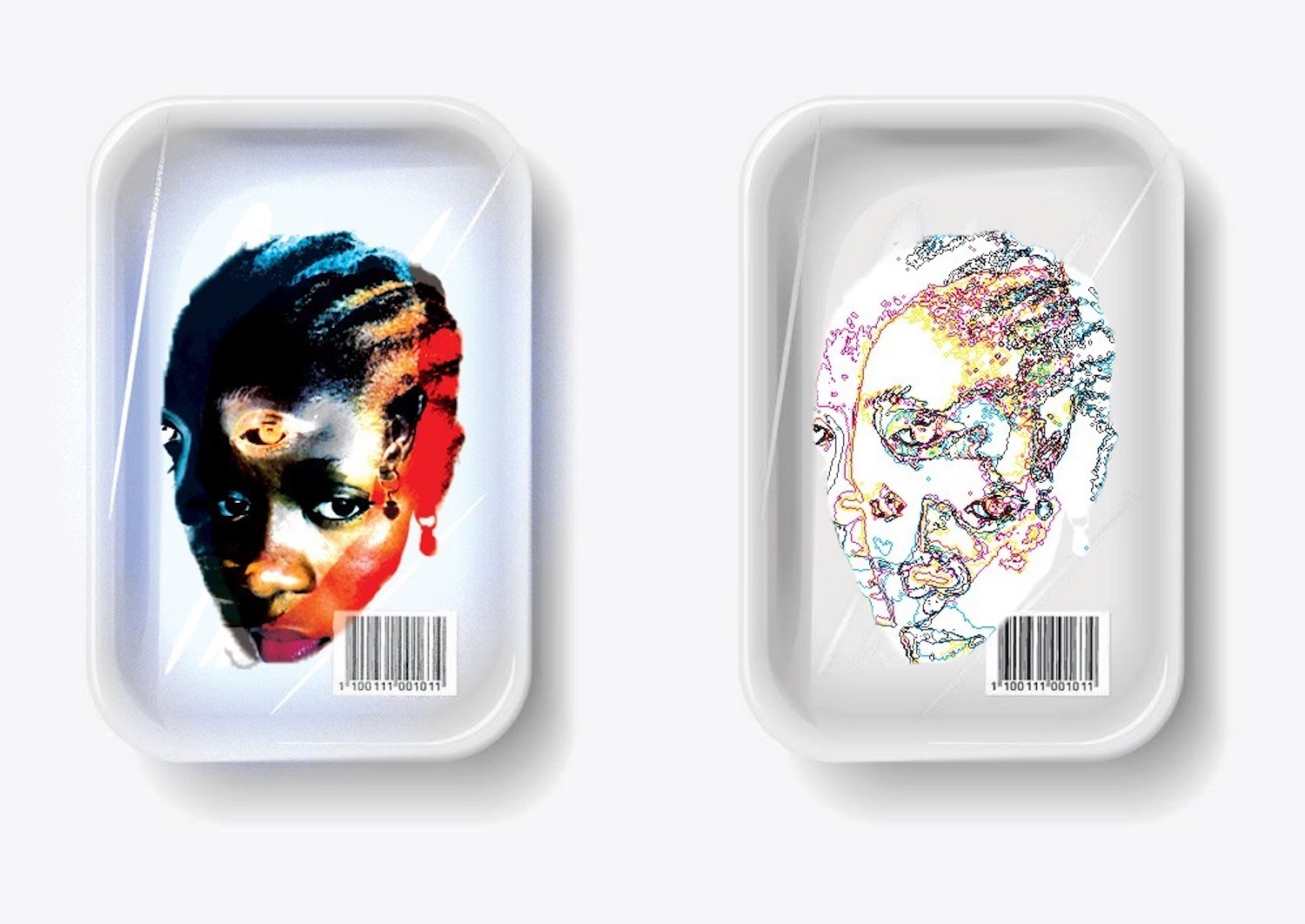

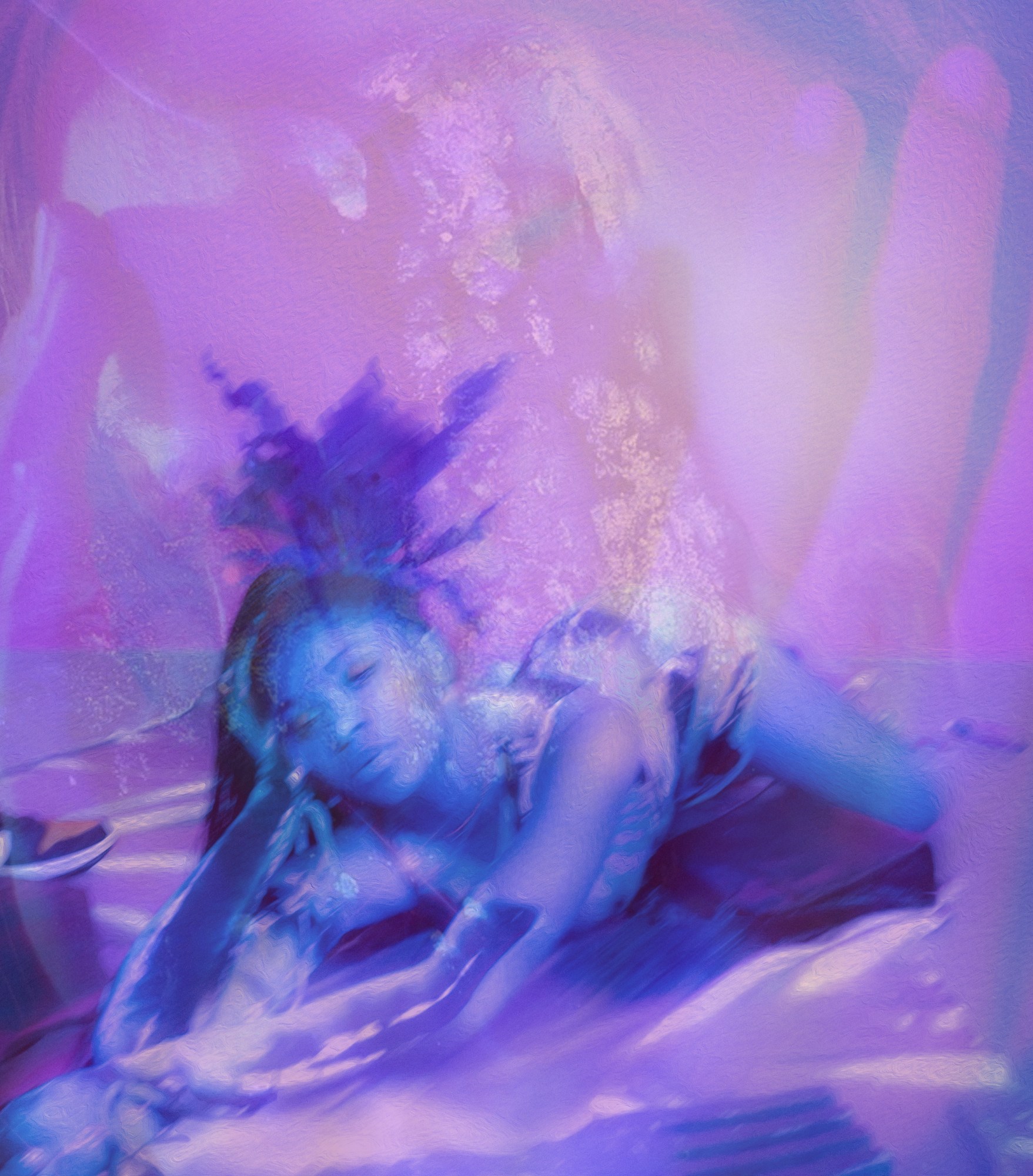
Credits
All imagery courtesy of AMKMQ

